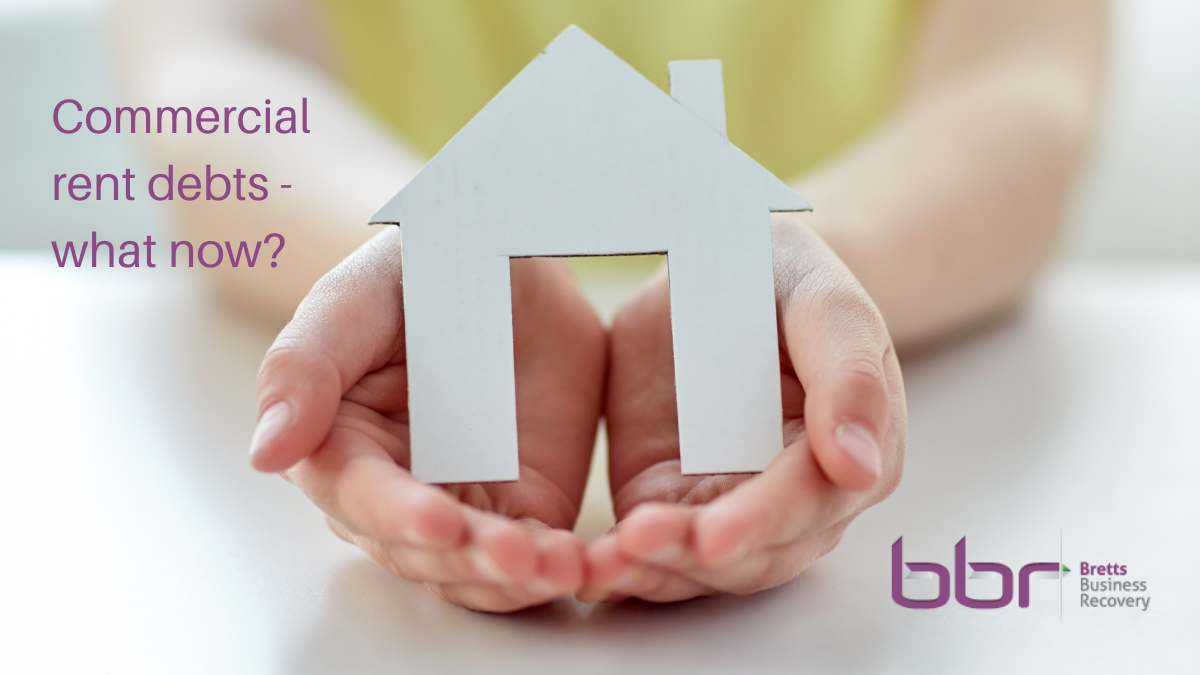Commercial rent debts – what now?

Many businesses have been unable to pay the rent on their commercial premises due to closures and a cessation of normal business operations during the pandemic. New laws and a Code of Practice are now being introduced to resolve these commercial rent debts. The Code of Practice will guide landlords and tenants in how to negotiate a way forward and help to get businesses back on track after an unprecedented period in their economic history.
Breathing space
Last year the government put in places measures to provide businesses with breathing space and protection against eviction (until 25 March 2022) This provides time for landlords and tenants to negotiate how to share the cost of commercial rent debts caused by the pandemic.
The new Code of Practice
The latest updates outlines the way in which these negotiations will be underpinned by a new Code of Practice, providing landlords and tenants with a clear process for settling outstanding debts before a new arbitration process comes into force. The Code of Practice sets out that, in the first instance, tenants unable to pay in full should negotiate with their landlord in the expectation that the landlord waives some or all rent arrears where they are able to do so.
Arbitration process
Once the protection against eviction ends after 25 March 2022, new laws introduced in the Commercial Rent (Coronavirus) Bill will establish a legally-binding arbitration process for commercial landlords and tenants who have not already reached an agreement, following the principles in the Code of Practice. Subject to Parliamentary passage, this will come into force next year. These laws will come into force in England and Wales, and Northern Ireland will have a power in the Bill to introduce similar legislation.
The arbitration process is seen as a last resort and a backstop after negotiations have failed. Parties are free to continue to negotiate outside of the legal arbitration process once it comes into force. The Code of Practice signposts tenants and landlords to forms of alternative dispute resolution, such as mediation, if they wish to pursue this and the government encourages landlords and tenants to negotiate their own agreement where possible instead of resorting to the arbitration process.
The window to apply for arbitration will be 6 months from the date legislation comes into force, with a maximum time frame to repay of 24 months. The Bill will apply to commercial rent debts related to the mandated closure of certain businesses such as pubs, gyms and restaurants during the pandemic. Debts accrued at other times will not be in scope.
The result of the arbitration process will be a legally-binding agreement the landlord and tenant must adhere to, resolving rent arrears disputes and helping the market return to normal as quickly as possible.
What else is included in the legislation
From 10 November 2021 the government is also protecting commercial tenants from debt claims, including County Court Judgments (CCJs), High Court Judgments (HCJs) and bankruptcy petitions, issued against them in relation to rent arrears accrued during the pandemic.
The announcement of these proposed legislative changes for commercial landlords and tenants follows on from a number of support measures outlined in the Autumn budget. These include reducing the burden of business rates in England by freezing the business rates multiplier for a further year – a tax cut worth £4.6 billion over 5 years – and introducing a 50% business rates discount for the retail, hospitality, and leisure sectors in England.
Advice
If your company meets the criteria but is unlikely to be able to repay its rent arrears in the prescribed time frame then you may need to consider other restructuring options. Get in touch with Bretts Business Recovery for a free initial consultation.